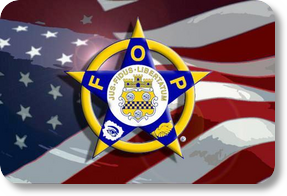
On November 25, the Senate gave final approval to the Hometown Heroes Survivor Benefits Act (S. 459 / H.R. 919), which will expand the Public Safety Officers Benefit (PSOB) program to cover public safety officers who die of heart attacks or strokes in the line of duty. The legislation, which gained House approval on November 22, now heads to the White House for the President to sign into law.
"This is a huge victory for public safety officers nationwide," said NVFC Chairman Philip C. Stittleburg. "The fire service owes its utmost gratitude to the bipartisan group of Senators and Representatives that worked so hard to ensure this bill's passage."
The legislation was originally introduced in the House by Rep. Bob Etheridge (D-NC), along with Representatives Steny Hoyer (D-MD), Michael Oxley (R-OH), and Curt Weldon (R-PA). In the Senate the effort was spearheaded by Sen. Patrick Leahy (D-VT), along with Senators Lindsey Graham (R-SC), Susan Collins (R-ME) and Jim Jeffords (I-VT).
Rep. Howard Coble (R-NC), Chairman of the House Subcommittee on Crime, Terrorism, and Homeland Security, and Sen. Orrin Hatch (R-UT) and Rep. James Sensenbrenner (R-WI), Chairmen of the Senate and House Judiciary Committees respectively, also played critical roles in moving the bill through the process.
The PSOB program currently provides a one-time death benefit payment of $267,494, which is administered by the U.S. Department of Justice, to families of public safety officers (fire, police and EMS) killed in the line of duty, as well as to officers permanently disabled while on duty. The death benefit is payable to the survivors of a public safety officer who "has died as the direct and proximate result of a personal injury sustained in the line of duty.
The Hometown Heroes Survivor Benefit Act will correct that deficiency in the law, by ensuring that a public safety officer who suffers a fatal heart attack or stroke while on duty or not later than 24 hours after participating in a physical training exercise or responding to an emergency situation, is presumed to have died in the line of duty for purposes of public safety officer survivor benefits.
According to the National Fire Protection Association (NFPA), 37 firefighters died from heart attacks in the line of duty in 2002.
Unfortunately, in almost every incidence of death by heart attack or stroke, it has been ruled that the heart attack or stroke was not a direct result of an injury sustained in the line of duty and the family receives no benefits even though the deaths were clearly triggered by the rigors of the job.
"There is nothing more important to the NVFC than ensuring the families of our firefighters that they will receive proper benefits should their loved ones fall while serving their communities," Stittleburg added. "Nearly half of all firefighter fatalities, though clearly caused by the rigors of the job, are not covered because they were heart-related."
Passage of this legislation has been a top priority for the NVFC in the 108th Congress.





